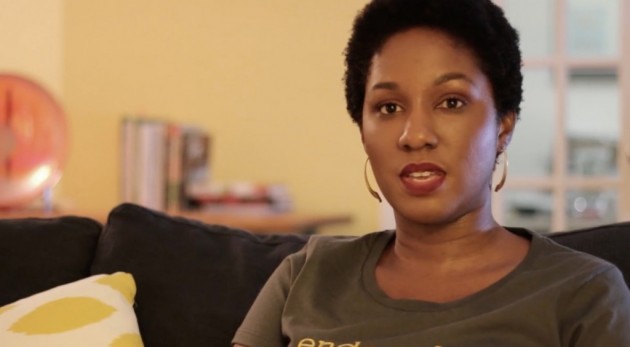Ever since the U.S. Supreme Court ruled the District’s 32-year ban on gun ownership as unconstitutional in June, the D.C. Council has been dueling with Congress to keep its newly established gun regulations in local hands.
The D.C. Council has also been squaring off against advocates of the Second Amendment right to keep and bear arms. Gun advocates complain that D.C.’s gun laws are stringent and fail to comply with the Supreme Court’s decision in the landmark District of Columbia v. Heller case.
“The hoops you have to jump through are completely unjustified,” said Gillian St. Lawrence, co-founder of Capital Gun Owners, who testified at a recent hearing held by D.C. Council member-at-large Phil Mendelson, chair of the Committee on Public Safety and the Judiciary.
St. Lawrence, one of the original six plaintiffs in the D.C. v. Heller case, is among those who argue that the legislation, in its current form, is unfair to law-abiding citizens who wish to own guns. Congress agrees.
The U.S. House of Representatives has already passed a billthat could dispose of most of the local gun control laws and restrict the D.C. Council’s ability to regulate firearms. The bill made its way to the Senate but may not be voted on in this session.
In a statement, the White House backed the House measure.
“It would immediately advance Second Amendment principles by directly protecting the individual right of law-abiding District residents to keep and bear commonly used firearms not only to protect themselves and their families but also to protect their homes and property,” the statement said.
In response, the D.C. Council passed emergency 90-day legislationon Sept. 16 that amended the current gun law and eased some of its rigid restrictions. The temporary legislation revised the definition of a machine gun, added a child access provision and clarified legalized gun carry circumstances.
In a statement, Mayor Adrian Fenty said that the legislation was an effort to make the law more compliant with the Supreme Court but also address the concerns of its citizens.
“This new legislation is the second step in the process to do all that we can to minimize handgun violence in the District,” Fenty stated. “These actions will continue to protect our citizens from gun violence while respecting the Second Amendment.” The murder rate in D.C. was 29 per 100,000 people in 2006, compared to 5.7 nationally, 5.2 in Virginia and 9.7 in Maryland.
The D.C. Council will be ratifying a permanent fix to the gun control laws while the emergency legislation is in effect with Bill 17-843, which is the “Firearms Control Amendment Act of 2008.” Councilman Mendelson recently held two public hearings on Bill 17-843. The hearings have addressed such issues as the restrictions in D.C.’s new gun law that prohibit the transportation of firearms outside the home and the cumbersome gun registration process. Pro-gun advocates testified that the city’s previous gun ban did nothing to curb violent crime in the District or keep guns out of the hands of criminals, and that it limited only the ability of law-abiding citizens to protect themselves.
Gillian St. Lawrence of Capital Gun Owners referred to the gun registration process as arduous and unreasonable. And she says the registration process, coupled with the current restrictions and D.C.’s lack of places to purchase firearms, ensures that the city has a “de facto gun ban.”
Because D.C. has no gun shops, St. Lawrence claimed that she would have to complete nine steps to register her gun, miss six days from her job and pay $173 in fees, which is not counting the cost of the handgun itself.
“This is all assuming I do not have a change of address in the District or happen to need my driver’s license to be renewed during this process or have a demanding job that I cannot get out of six times, all of which will further delay the process,” she said. “All of this would have to be completed in 90 days under the current emergency legislation. This arduous process is unacceptable in and of itself.”
Due to zoning regulations, Washington has no gun shops within the District’s limits. Residents must go to neighboring states like Maryland or Virginia to purchase handguns. But because of federal gun trafficking laws, any firearms purchased out of state must be shipped to a federally licensed gun dealer. For now, that person is Charles Sykes, owner of CS Exchange in Anacostia.
According to the Metropolitan Police Department, the city has six Federal Firearm Licensees but Sykes is only one willing to facilitate gun transfers, for which he charges $125 per transfer. That will change soon, because the police department has also confirmed that it has received additional applications from individuals applying for gun dealing licenses.
Janae Grant, commissioner of Single Member District 5A11, also testified before council saying, “We as current, taxpaying residents that live and vote in the District are truly disgusted with the acts of Congress and nonresidents of D.C., like Mr. Heller, who have taken our voting rights as a joke to dismantle in front of us, who are committed to living and rearing our families in the District.”
The commissioner outlined some positions that her district favors, such as allowing one registered buyer per household or property address, lengthening the number of days that a registrant is able to register a handgun from 30 days to 90 days or more, enforcing gun safety courses with firearm purchases and following more stringent rules for gun registration applicants.
Ricardo Royal, national president of Community Association for Firearms Education, asked that the council amend the gun carry law to accommodate recreational shooters. He also had taken issue with the law’s magazine limit of 10 rounds, calling it a “feel good restriction” that acts as only an impediment to registered gun owners because it does nothing to reduce crime.
“The current ammunition restrictions prevent law-abiding voters that desire to participate in a variety of [recreational] shooting activities involving firearms,” Royal said. “It has no effect on preventing crime and only prevents D.C. residents from saving money.”




